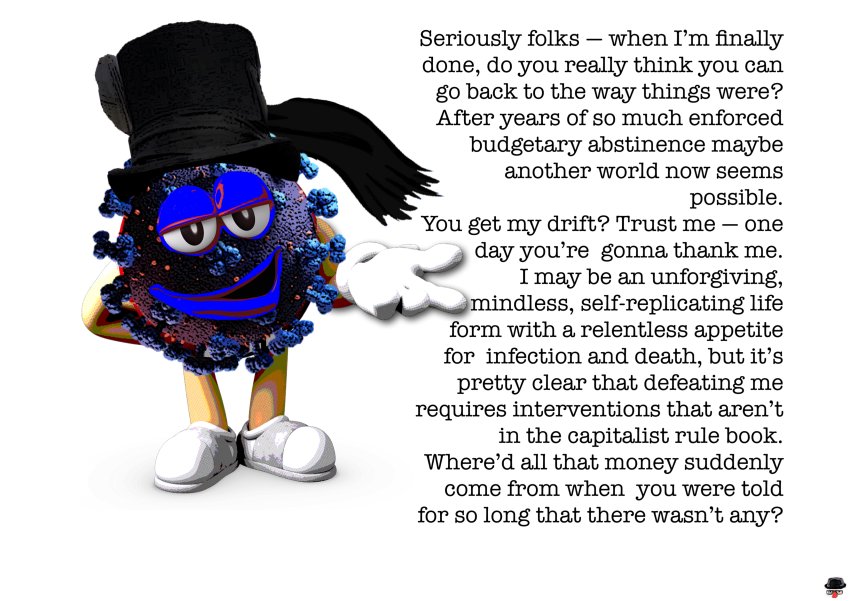
Who should pay for the more than $300 billion COVID-19 stimulus packages? This question will loom large as the crisis dissipates and governments seek to make workers and the poor take the load, through wage and conditions “restraint”, higher taxes and the elimination of all special COVID-19 packages.
A more obvious and equitable answer is that corporate tax dodgers and the super rich 1%, who are already ripping off the system, be made to pay.
Journalist Michael West has been keeping track of Australia’s top 40 tax dodgers and posted a comprehensive list on January 31.
ExxonMobil Australia is top of a list that features 13 multinational fossil fuel companies. Tax Office data states its income was $42.3 billion over the past five years.
“It has not paid one cent in income tax in this country”, West said. “This means that every worker on the minimum wage in Australia, and plenty who earn less, pay more income tax than this United States oil juggernaut ... Exxon’s peer Chevron [also] paid zero tax over five years, notwithstanding its $15.8 billion in total income.”
West reports that five of Australia’s top coal companies — Peabody, Yancoal Sumitomo, Citic and Whitehaven — between them recorded $54 billion in total income over the past five years. Yet they paid zero income tax in Australia.
“The Top 40 is based on the annual corporate tax transparency report from the Australian Tax Office”, West said. “Its methodology relies not only on the sheer size of revenue and the sheer absence of tax, but also a metric which indicates aggressive ‘offshoring’ of pre-tax profits.”
How do Exxon and Chevron and the other giant companies achieve this?
“Debt-loading” is a preferred technique. The Australian-based subsidiaries take huge loans from parent and associated companies, commonly located in tax havens, and the profits are sent out of Australia tax-free as interest on the loans.
Multinational corporations have perfected the art of eliminating any paper trail of profits made in Australia, to avoid relatively higher company tax rates. They then transfer the actual profits to a tax haven.
Methods of achieving this include debt-loading returns of capital, assorted “service agreements” to pay offshore companies a fee, complex derivatives such as “swaps” and intellectual property payments, or royalties.
Another well-worn method is “transfer pricing”. This involves paying often inflated prices for products from an associated company overseas.
For decades, multinational companies have been very successful in their tax avoidance strategies. For an equitable recovery from the coronavirus crisis, society needs them to pay up.
Tax Justice Australia spokesperson Mark Zirnzak told West: “[Corporate tax] is crucially important as a function of our society. It [helps] pay for the schools, the universities, the court system, all the functions of government and the things in our society from which these companies benefit.
“They need to pay their contribution. These things benefit their businesses; they help them do business here. Also globally, under global tax rules, the poorest people are the most affected. Multinational mining companies, in particular ... are the worst offenders.”
The Coalition’s tax cut bill, passed in July, will disproportionately benefit the top end of town. Stage 3 will flatten the tax system, meaning workers on a measly $45,000 a year will pay the same marginal rate as those on $200,000.
About 60% of the benefits from the cuts will go to the top 20% of taxpayers. Last June The Australia Institute’s deputy director Ebony Bennett explained how the tax cuts would further erode progressive taxation.
“The latest tax statistics show only about 3% of income earners will be in the top marginal tax bracket. And it is high income earners who will benefit most from the income tax cuts, particularly the Stage 3(a) tax cuts, which will deliver $26 billion to people earning over $200,000 a year and benefit men almost twice as much as women.”
Taxes are “a large part of the revenue that pays for the services and infrastructure”, she said, adding the Coalition government’s decision to cut income tax revenue by $300 billion, on top of the billions in company tax cuts it has already passed, is “a lot of foregone revenue”.
Bennett said: “The highest income earners paying the highest proportion of tax is not a design flaw, it is the system working as designed, and the jewel in the crown of our progressive income tax system. It’s an egalitarian system that has served us well.
"The problem is the Coalition is successfully and radically redefining where the top end is.”
While the coronavirus crisis has turned economic calculations on their head, the missing $300 billion in tax from high-income earners would come close to covering the cost of the government’s COVID-19 stimulus measures.
When the corporate media, conservative politicians and right-wing shock jocks ramp up their campaign for cuts to workers’ wages and conditions and welfare payments to “pay for” the coronavirus crisis, the left and labour movement needs to vigorously respond by demanding an end to corporate tax rorts and the repeal of the corporate tax cuts.
We need to get organised now for the attacks we can expect and seek to preserve the protection measures the government has been forced to concede during the COVID-19 crisis.